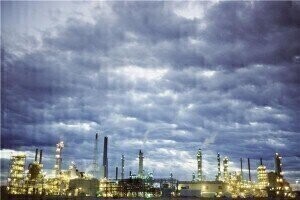Analytical Instrumentation
The Crucial Role of Petrochemicals Characterisation: Unveiling the Secrets of Hydrocarbons
May 25 2023
Petrochemicals are the building blocks of modern society, playing an indispensable role in various industries, including energy, transportation, agriculture, and manufacturing. These complex chemical compounds derived from petroleum refining are the backbone of numerous essential products we rely on daily. However, their diverse applications and ever-evolving industry necessitate a comprehensive understanding of their characteristics, properties, and behaviour. This is where the importance of petrochemicals characterisation and the advanced instruments and techniques employed in the process become apparent.
Unveiling the Secrets:
Petrochemicals characterisation refers to the systematic analysis and evaluation of these hydrocarbon-based compounds to determine their composition, structure, physical properties, and performance characteristics. By delving into the molecular intricacies of petrochemicals, scientists and engineers can unlock a wealth of knowledge that drives innovation, enhances quality control, improves process efficiency, and ensures the safety and sustainability of various industries.
Instruments and Techniques:
- A myriad of instruments and techniques are employed to characterise petrochemicals accurately. Let us explore some of the key ones and their significance:
- Gas Chromatography-Mass Spectrometry (GC-MS): GC-MS is a powerful analytical technique used to separate and identify individual components within a petrochemical sample. It helps determine the molecular structure, molecular weight, and concentration of different compounds present. This information is crucial in understanding the petrochemical's behaviour during various processes, such as refining, polymerisation, or combustion.
- Nuclear Magnetic Resonance (NMR) Spectroscopy: NMR spectroscopy provides insights into the structural composition of petrochemicals at an atomic level. By examining the interactions between atomic nuclei and their local chemical environment, NMR helps identify functional groups, isomerism, and molecular connectivity. This information aids in designing and optimising chemical reactions and elucidating the properties and performance of petrochemical products.
- Fourier Transform Infrared (FTIR) Spectroscopy: FTIR spectroscopy allows for the identification and quantification of functional groups and chemical bonds present in a petrochemical sample. It provides valuable data on the chemical composition, purity, and stability of petrochemicals, enabling scientists to assess their suitability for specific applications. FTIR spectroscopy is also employed in monitoring the quality of raw materials and intermediates during petrochemical production processes.
- Differential Scanning Calorimetry (DSC): DSC measures the heat flow associated with physical and chemical changes occurring in petrochemicals. It helps determine important parameters such as melting point, glass transition temperature, crystallinity, and thermal stability. These insights are crucial for evaluating the suitability of petrochemicals in various applications, such as polymer production, lubricants, and additives.
- X-ray Diffraction (XRD): XRD is utilised to examine the crystalline structure and phase composition of petrochemical materials. It provides valuable information about their molecular packing, which affects their physical and mechanical properties. Understanding the crystallographic behaviour of petrochemicals aids in tailoring their performance characteristics and optimising manufacturing processes.
The Impact:
The proper characterisation of petrochemicals through these instruments and techniques offers several crucial benefits:
- Quality Control and Product Development: Accurate characterisation enables manufacturers to maintain consistent quality standards, ensuring that petrochemical products meet regulatory requirements and customer expectations. It also facilitates the development of innovative formulations and enhanced performance materials.
- Process Optimisation and Efficiency: Insights gained through petrochemicals characterisation help optimise refining, production, and manufacturing processes. This leads to increased efficiency, reduced waste, and improved energy consumption, contributing to sustainable practices and cost savings.
- Safety and Environmental Considerations: Understanding the behaviour and properties of petrochemicals aids in assessing their potential hazards, ensuring safe handling, storage, and transportation. Furthermore, characterisation data assists in the development of environmentally friendly alternatives and processes, reducing the carbon footprint and mitigating environmental impact.
Please see further information here.
Digital Edition
PIN 25.3 June/July
June 2024
Analytical Instrumentation - Recent Advances In Various Bench Scale Accelerated Oxidative Testing Methods For Fuels - Petrochemical Industry: Anton Paar Solutions Streamline Processes, Reduce H...
View all digital editions
Events
Jul 30 2024 Jakarta, Indonesia
Jul 30 2024 Jakarta, Indonesia
China Energy Summit & Exhibition
Jul 31 2024 Beijing, China
Jul 31 2024 Chengdu, China
Aug 05 2024 Moon Township, PA, USA


















